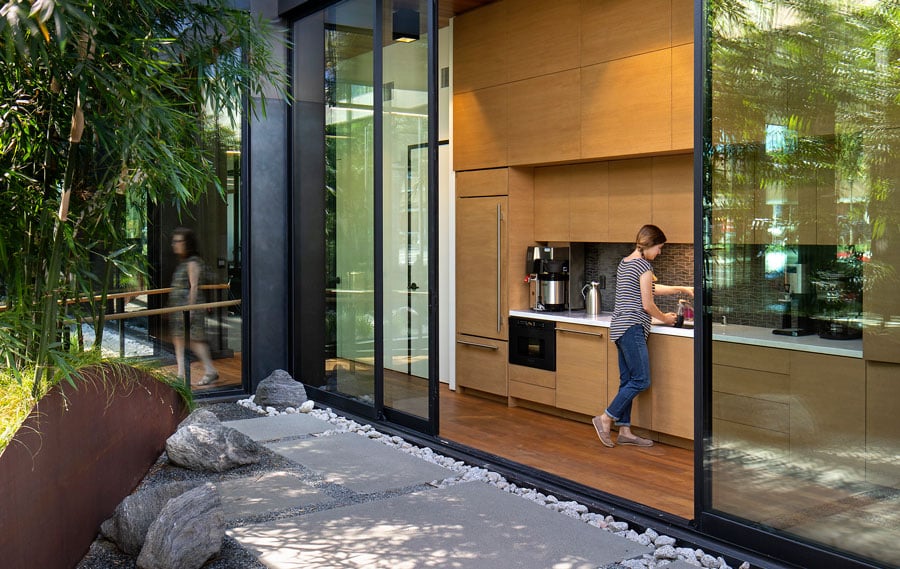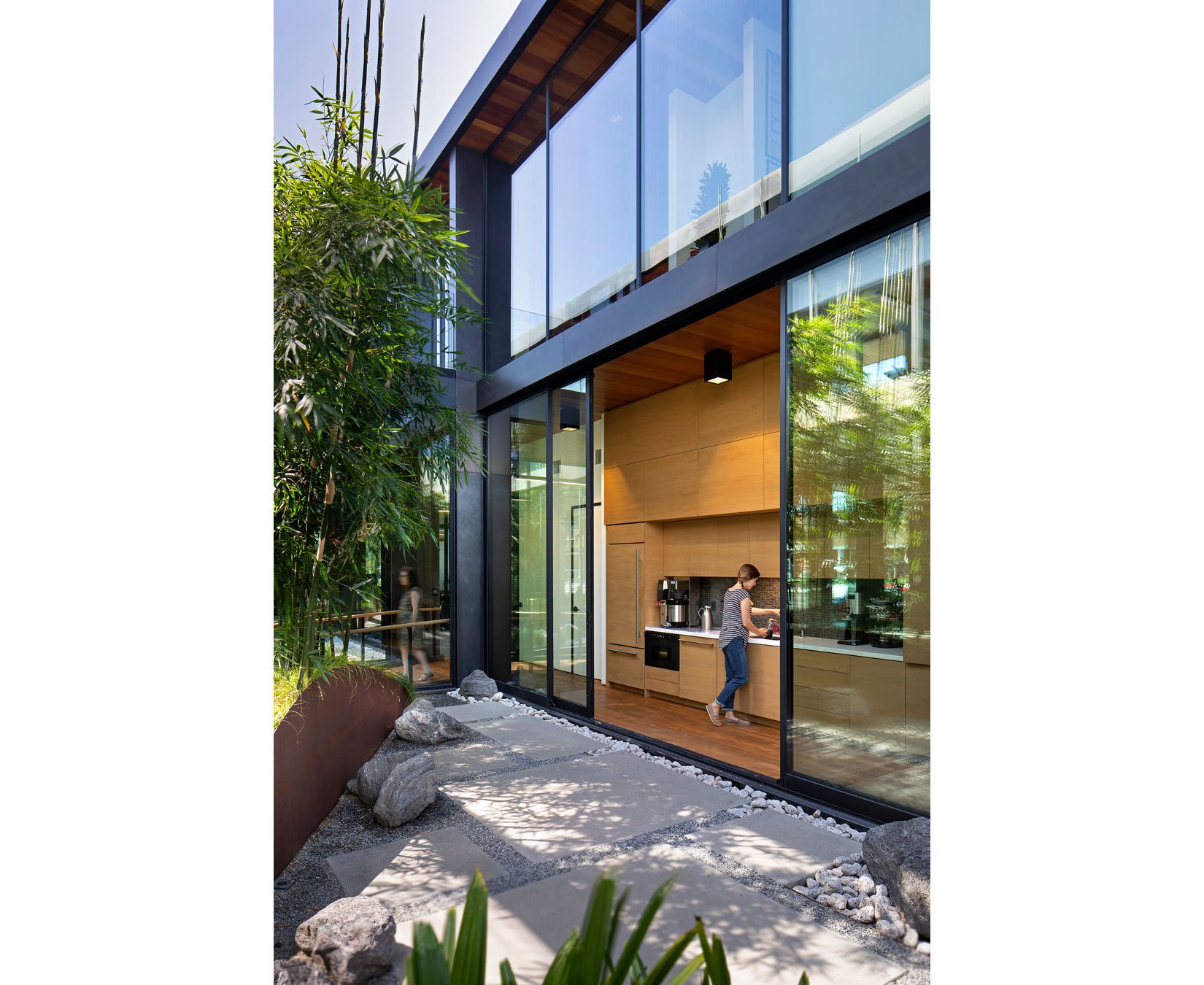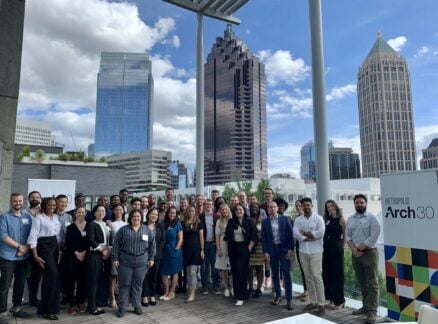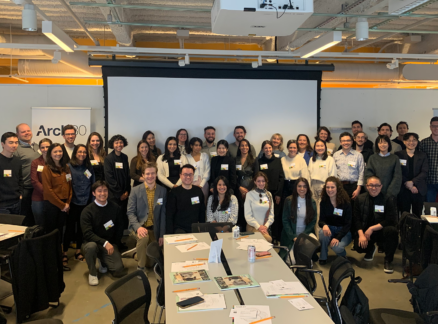
August 21, 2020
As COVID-19 Drags On, A New Social Contract for the Workplace Emerges
A recent Metropolis Think Tank panel discussed how the pandemic has changed our expectations for the office, and what’s necessary to attract and retain talent.
In the first virtual Metropolis Think Tank event on August 6, “From Flexible to Evergreen: Tackling the Core Issues of the Workplace,” hosted by San Francisco-based design firm Blitz, a panel undertook a wide-ranging discussion of the workplace in the wake of COVID-19, design sustainability and the emerging “social contract” between employers and employees.
Moderated by Metropolis editor in chief Avinash Rajagopal, the discussion could not avoid the “elephant in the room” – the vast changes brought to the workplace by the Corona virus.
“The genie’s out of the bottle,” said Yana Ronin, founder and chief strategist at FORTYSEVEN LLC, a facilities strategy consulting firm. “We can work in different places and in different ways. Consider how 9/11 changed travel. COVID-19 will have a similar effect on the workplace.”
https://player.vimeo.com/video/447544289
But is the office as we know it dead? Absolutely not, the panelists insisted.
“One day real estate is dead and the next day someone’s signing a deal for 700,000 square feet in Midtown Manhattan,” Ronin said. “People still want an office, a place to go. What I think will happen is a rebalancing of individual workplaces versus communal workplaces.”
“Real estate must not be so reactionary,” said Tim Bergen, a San Francisco–based facilities executive. “These monumental square footage grabs are not part of the future. The 10–to 15–year lease terms will be shorter.” He added that the concepts shining through are reliance, flexibility and, yes, resistance. “Things tend to work pretty well the way they are. I love that my field, technology, is leading the way to promoting health and wellness for its workers.”
Melissa Hanley, principal and co-founder of Blitz, took issue with two workplace design clichés.
“Yes, everybody wants flexibility and collaborative spaces and yada yada yada,” she said. “But we have to build longevity into spaces, so they can be used by subsequent tenants. From an ecological point of view, going in and ripping up spaces and starting over is the worst thing we can do.”
Just as it has largely democratized the American office, the digital revolution has flattened hierarchy. Kimberley O’Dowd, director of projects at Blitz, points to the now-ubiquitous Zoom meeting itself – “the grid has made everyone equal.” In the same vein, she predicts that as normalcy returns, “there will still be a certain number of workers still at home. It can be daycare and other issues. It shouldn’t be punitive.”
Metropolis’s Rajagopal suggested that “maybe the next office amenity is health and safety.” FORTYSEVEN’s Ronin took that idea and ran with it.

“There’s the idea of thresholds between the outside world and interior workplace,” she said. “Maybe we don’t want to bring the outside in, so there’ll be lockers and ‘outdoor shoes’ and ‘indoor shoes’. There’s the emerging social contract between a company and its employees. It has three points: Cleanliness, social distancing and protecting at-risk populations. None of these require an architectural intervention.”
Bergen urged the panel not to make facilities decisions as strictly financial discussions or “you’re dead in the water. Better to approach it from ideas of inclusion and by identifying the up and comers. Cast as wide a net as you possibly can. Realize that today’s up and comers are tomorrow’s executive decision makers.”
Rajagopal agreed: “Yes, a strict top-down approach never works.”
The Think Tank discussions were held on August 6, 13, and 20. The conversations were presented in partnership with Design TV by SANDOW, B+N Industries, GROHE, KI, Material Bank, and Versteel.





